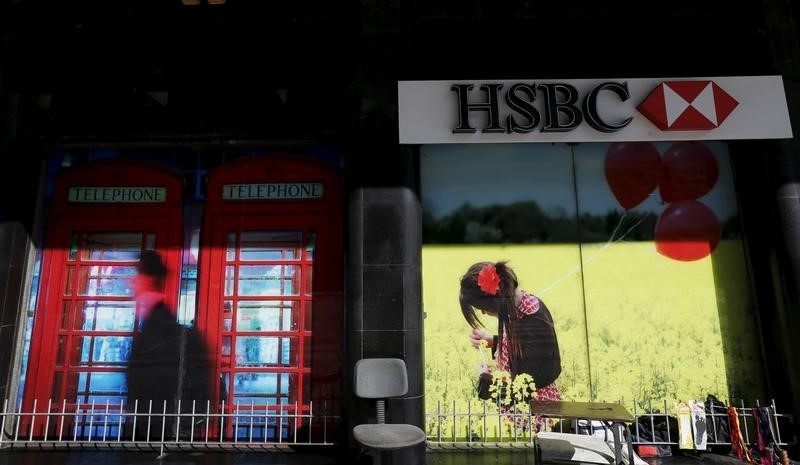European Stocks Lower; HSBC Weighs While Commodity Prices Rise By Investing.com

By Peter Nurse
Investing.com – European stock markets weakened Tuesday, despite higher commodity prices with HSBC weighing as the region’s largest bank illustrated the current difficulties for the sector.
At 4:10 AM ET (0910 GMT), the DAX in Germany traded 1% lower, the CAC 40 in France fell 0.2% and the U.K.’s FTSE index dropped 0.1%.
HSBC (LON:HSBA) stock lost 2% after its annual profit fell sharply due to the Covid-19 pandemic, dropping 34% from a year ago to $8.78 billion.
That still beat analysts’ expectations of $8.33 billion, according to estimates compiled by HSBC. However, the bank abandoned its long-term profitability target, and unveiled a revised strategy focused mainly on wealth management in Asia, underlining the tough outlook for the banking sector with interest rates at all-time lows.
However, heavily-weighted resource stocks have helped limit losses in Europe with commodity prices on a tear.
Oil prices surged Tuesday with U.S. production slow to return from the deep freeze which affected large swathes of the country last week, while both base metals, like copper, and precious metals, such as gold, have climbed sharply on the back of global recovery hopes and inflationary concerns.
U.S. crude futures traded 0.9% higher at $62.22 a barrel, while the international benchmark Brent contract rose 0.9% to $64.96. Gold futures were 0.1% lower at $1,806.30/oz, while copper futures were flat at $4.15/oz, not far off the all-time high set in 2011.
As a result, BHP (LON:BHPB) stock climbed 1%, Rio Tinto (NYSE:RIO) stock gained 0.5%, BP (NYSE:BP) stock rose 3.2% and Shell (LON:RDSa) stock gained 1.4%.
Elsewhere, German cement-maker HeidelbergCement (DE:HEIG) stock fell 2.1% even as it posted a 6% rise in core profit for last year, while private security firm G4S (CSE:G4S) recommended shareholders vote for Allied Universal’s final offer, ending a months-long takeover battle with Canada’s GardaWorld.
In economic news, the U.K. received some good news Tuesday, as the unemployed claimant count actually fell by 20,000 in January as opposed to rising by the forecast 35,000. That said, the unemployment rate climbed to 5.1%, the highest in nearly five years.
On Monday, British Prime Minister Boris Johnson outlined a path to take his country out of Covid-19 lockdown, in an effort to gradually reopen the battered economy, aided by one of the fastest vaccine rollouts in the world.
Across the pond, Federal Reserve Chair Jerome Powell’s semi-annual testimony before Congress, starting later Tuesday, will be of intense interest, given that the surge in bond yields represents a clear test of the Fed’s commitment to keeping monetary policy loose to support the recovery.

